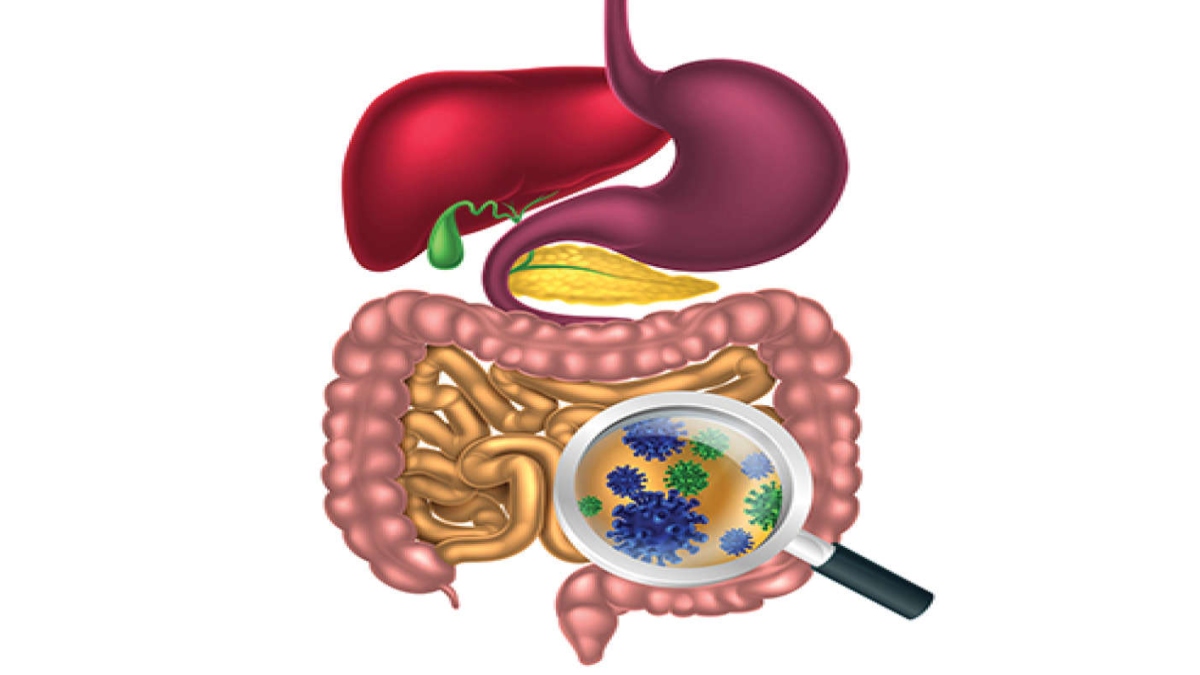


What is the gut microbiome?
Few of us give any importance to our digestive system till it starts giving us trouble. We think about our blood sugar levels, our cholesterol and our heart health after a certain age. But we fail to realise that all of this is linked closely to our digestive health.
To understand this connection, let me explain what the gut “microbiome” is. The term “gut” refers to our digestive tract, especially the small and large intestine. We think our digestive system only deals with the breakdown of food into smaller particles for conversion into nutrients and energy that can be used by our body. The gastrointestinal tract (GIT) is home to more than 1000 different microorganisms (bacteria, fungi, viruses) belonging to over 2,000 species and 12 different phyla. They collectively possess 150- to 500-fold more genes than the DNA in the host or humans. Most of them are in a pocket of the large intestine called the cecum. Together, they form a complex ecosystem known as the gut microbiome.
The Human Microbiome Project (HMP) clearly showed that the diversity of the gut microbiome plays an important role in overall human health, the body’s immune response to infections and in maintaining metabolic homeostasis.
The gut microbiota is unique for every person and it plays a key role in the progression of inflammatory bowel disease, obesity, type 2 diabetes, cardiovascular disease, and cancer, among other chronic diseases.
THE IMPORTANCE OF BALANCE AND DIVERSITY IN THE GUT MICROBIOME
Generally, the more diverse your gut bacteria, the healthier you are. The balance of microbes in the gut microbiome is closely connected to the health of other major organs and systems in the body. There are mainly three types of bacteria in the gut—beneficial bacteria, harmful bacteria and opportunistic bacteria.
Beneficial bacteria boost immunity and aid digestion and harmful bacteria can trigger disease and cause ageing. Opportunistic bacteria cause no harm when the gut is healthy but can cause harm when the delicate balance between good and bad bacteria is disturbed.
Gut microbes live in perfect harmony, helping us to digest food, eliminating toxins, producing active molecules and educating our immune system to protect us against harmful microbes including viruses. When this balance is disturbed, it is called dysbiosis. In the long term, such imbalance can trigger chronic inflammation and lead to serious diseases like diabetes and heart issues.
Many scientific studies have found that poor gut health and chronic inflammation leads to poor health in general. 70% of our immune system is located in our gut and 90% of the happy hormone “serotonin” is made in our gut. The gut, therefore, plays an important role in your physical and emotional health.
Conditions caused by poor gut health can include skin breakouts, obesity, digestive issues like bloating and constipation, hormonal imbalances, joint pain and decrease in cognitive functioning. You need to make your gut microbiome as diverse as possible and restore balance if there is a state of dysbiosis.
Research has shown that the gut microbiome of people today is less diverse than it used to be decades ago. This is due to many factors like increase in the use of antibiotics, wider use of processed foods, higher prevalence of a sedentary lifestyle, more stress related to the modern lifestyle, environmental toxins and even excessive hygiene. Less diversity in gut health means poorer gut health.
HOW DO WE IMPROVE GUT HEALTH?
Improving gut health does not have to be difficult. In order to restore a healthy gut, we first need to have an idea of how good or bad it is. Digestive issues like heartburn, bloating and constipation can be a pointer to poor gut health. However, the best way to get an accurate idea about your gut health is to take a test.
It is a simple, at-home test that takes only 10 minutes. It serves as a good starting point as it can give you a snapshot of your gut health. The test report provides you with a clear overview of the microbes in your gut. Your Gut Microbiome Index (GMI) score highlights how diverse your gut bacteria are. The lower your score, the greater the degree of imbalance in your gut. There is no cause for worry, though. This is a situation that can definitely be corrected. Based on your gut microbiome, personalised food recommendations and easy-to-follow diet charts are provided to improve your gut health.
The diversity of your gut microbiome and the status of your gut health depends a lot on your food choices. While broccoli and beans might be considered healthy food choices for most people, they need not necessarily be good choices for you based on your unique gut microbiome. This is where you need expert help and guidance like the kind provided by our team.
Over a period of time, you can tweak your food choices to improve your gut health. It is possible to make your gut microbiome a lot richer and more diversified over three to four months. Correcting your gut microbiome will offer the benefits of better brain health, clearer skin, higher energy levels, smoother digestion, lower risk of disease, and better health overall.
Paying more attention to our gut health can significantly reduce such risks and the costs related to healthcare. It is high time that there is greater awareness of the importance of the gut microbiome and the impact it can have in reducing the risk of chronic diseases.
The writer is founder & CEO, Bione.